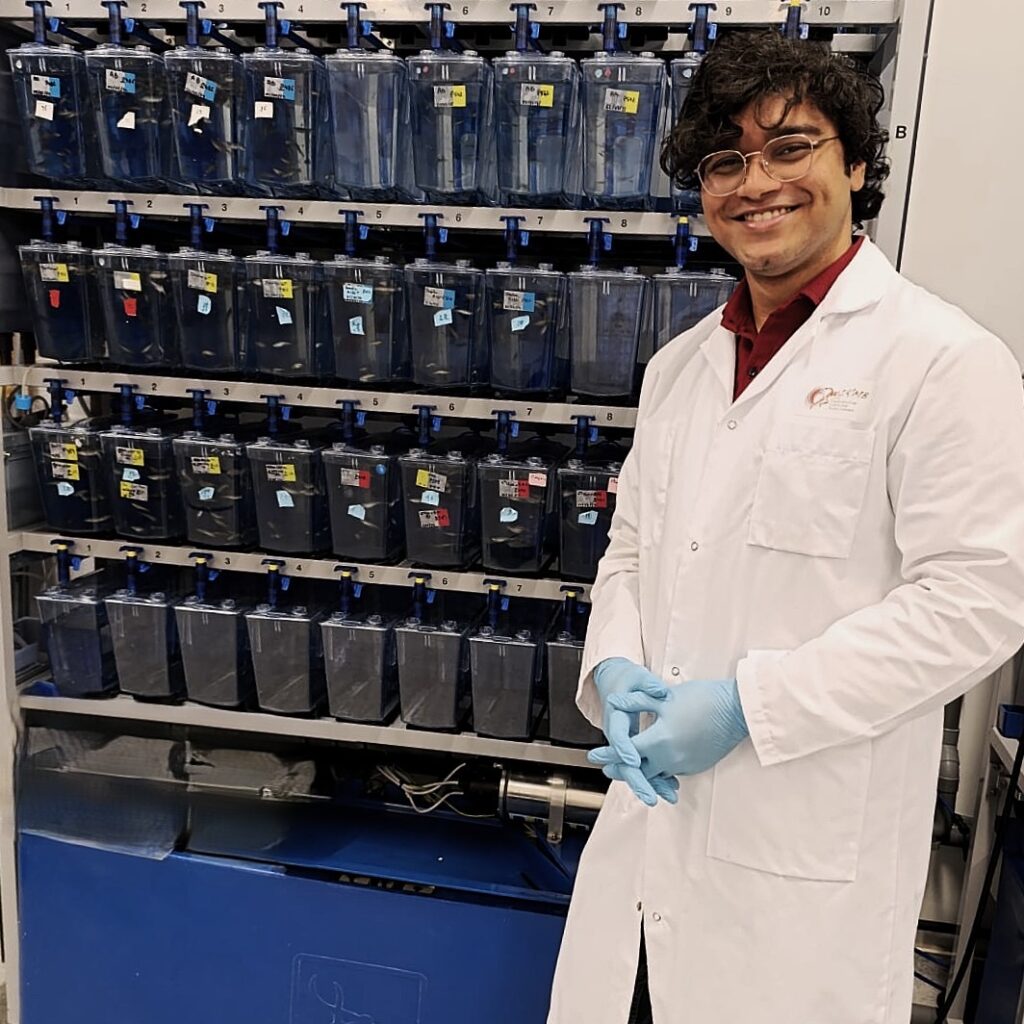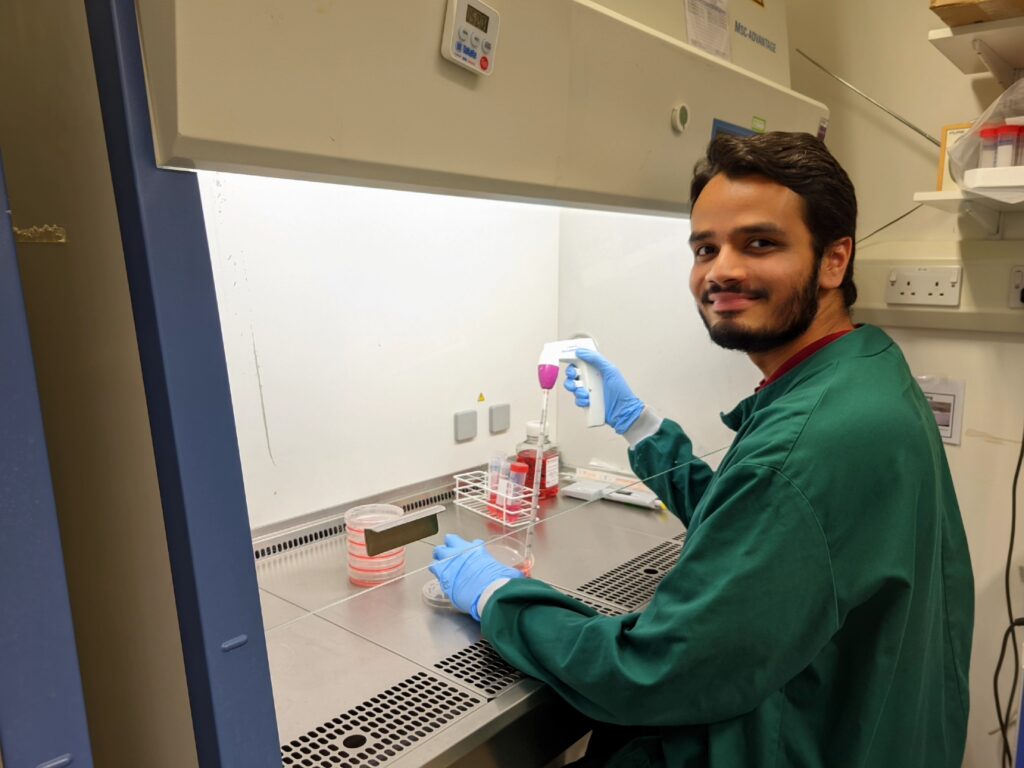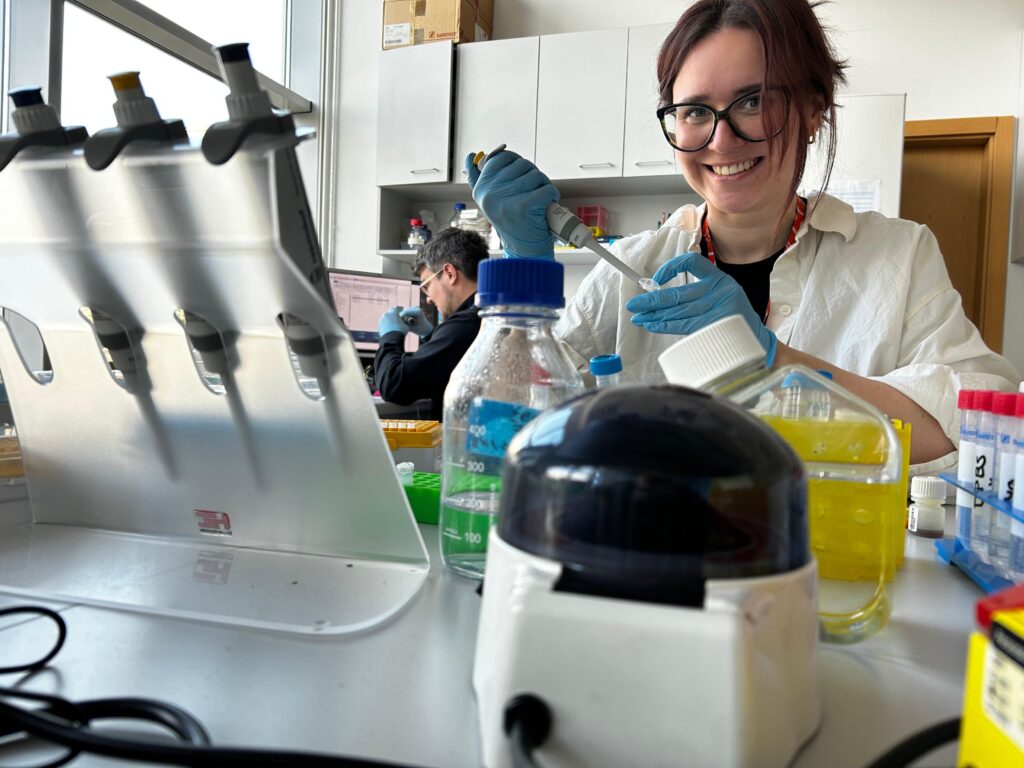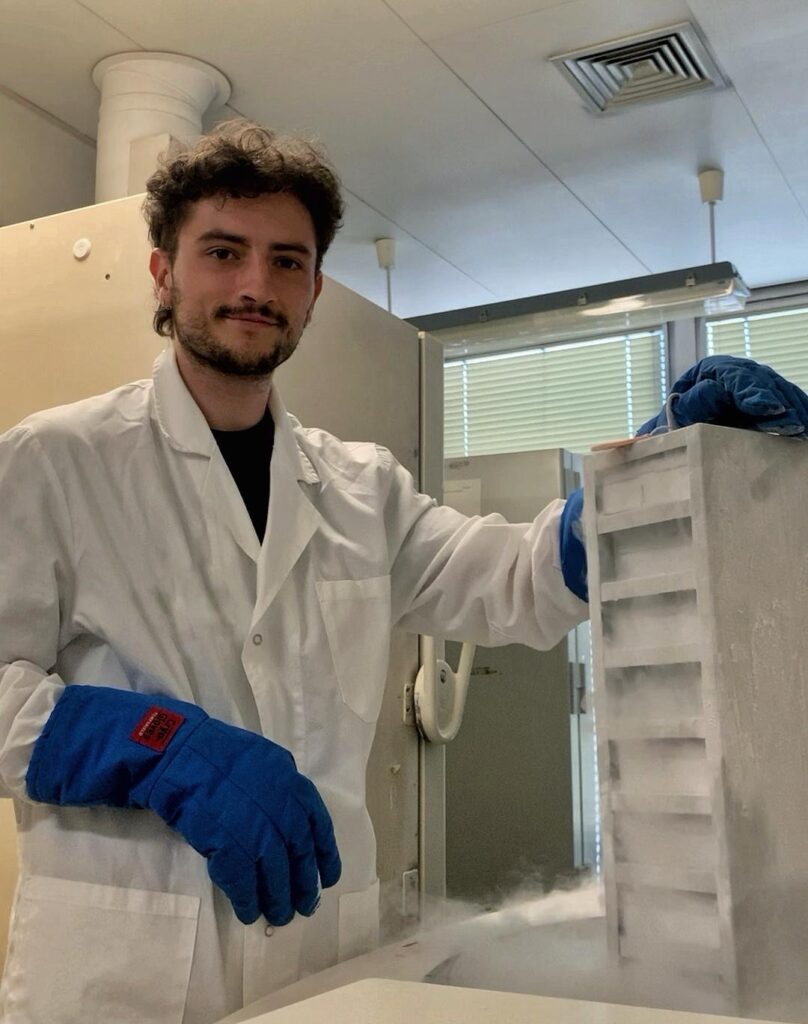Maulana Ariefai
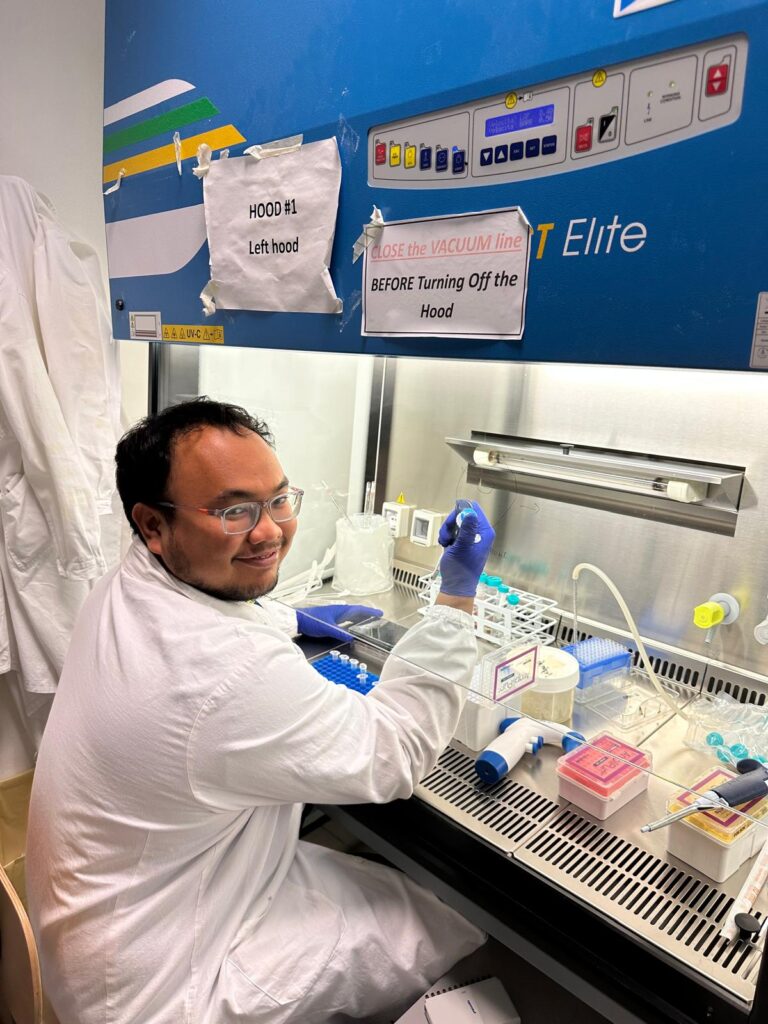
Hey everyone! I’m Maulana Ariefai, a ChromRare PhD student at the University of
Trento, working in Prof. Alessio Zippo’s Chromatin Biology & Epigenetics group.
Our team is passionate about understanding how epigenetic changes affect stem
cells — both in normal and disease conditions. In my project, I focus on CHD7, a
fascinating protein whose mutations are linked to CHARGE syndrome, a rare
developmental disorder.
We believe that the way CHD7 forms tiny liquid-like “condensates” inside the nucleus
is crucial for keeping cells healthy. When this process goes wrong, it might trigger
disease. To study this, I use super-resolution microscopy (dSTORM) — which lets us
see structures as small as 10 nanometres — and single-particle tracking to follow
CHD7’s movements in living cells.
It’s challenging work, but incredibly exciting! Every image and dataset brings me a bit
closer to understanding how our genome’s organization impacts life and disease. My
hope is that one day, our findings will inspire new therapeutic strategies for CHARGE
syndrome patients.


